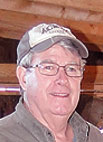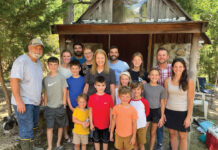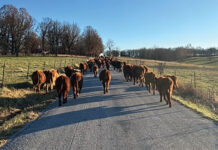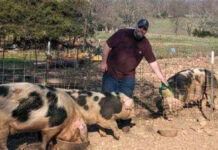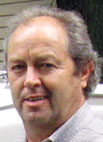
Danny Fanning of Joplin, Mo., is a man with a busy mind and restless spirit. The one constant thing in his life has always been his love for livestock, more yet the love for purebred cattle. Danny said, “Showing my first heifer when I was 6 started my whole life’s career. I remember it just like it was yesterday, caring for my first heifer project and showing her for the first time. Our three children were all raised in the 4-H program and now 60 years later some of my grandkids are heading down that path. I love it and it’s what keeps me going.”
With 50 years of experience with his own herd and over 40 as a purebred livestock manager, Danny has been involved in five different breeds over the country. Danny eventually decided to leave the livestock management field in order to spend more time with his own registered polled Hereford operation.
To accomplish this, seven years ago Danny entered an entirely new field by working for EaglePicher, a battery company specializing in high-end and professional batteries for medicine and space technology. His position as a quality control inspector provides more regular hours than livestock management and therefore more time to pursue his own agricultural interests. “My off-site job helps me fulfill my goals for our livestock operation. It’s important for me to walk through the herd each and every day to visually see the livestock for good health and management practices.”
Danny and his wife, Lila, who also helps with the books and marketing strategy, currently run 25 head of registered polled Hereford cows on a small farm in Oronogo, Mo. Danny’s original herd for years was a registered Angus herd.
Danny explained, “From a young age I always liked Angus cows and they were very popular during that time. We built the herd up to 125 cows. In the early ‘90s we started adding a few Shorthorn cows to our program and gradually ended our Angus program and continued building out Shorthorn herd.”
In 1994 Danny and Lila moved from Kansas to Missouri where he started managing a registered Brangus operation in the Neosho, Mo. Over the next few years he phased out the Shorthorn herd and added a small Brangus operation. Then in 2007 he started a registered polled Hereford herd, his current interest. Danny said, “During all that time I have realized that there are good cattle in all breeds especially through tools like artificial breeding, embryo transfer and EPDs.
The livestock industry has exploded in producing genetics of great quality in the livestock industry.” Danny chose polled Herefords because the females and bulls are in strong demand by both registered and commercial cattleman across the country. He also believes they are probably the strongest breed in demand in the show ring throughout the country.
Danny uses the Ozarks Farmfest and the Spring Ag and Urban Fest, both in Springfield, Mo., to help merchandise his breeding stock in addition to some showing, print media and word-of-mouth marketing strategies.
In the late 1980s Danny began working with embryo transplant using eggs from his top-producing cows along with a few embryos purchased from other top-producing cow herds. Danny tries to keep back five heifers each year for replacements. Having a very intense breeding program, Danny selects semen from some of the top polled Hereford bulls in the country. The main criteria for semen selection are the visual appearance of offspring and EPDs, especially for birth weights and growth.
Danny supports his herd with a detailed vaccination program, which includes deworming, Cattle Master, Lepto, Vibro and a strong vitamin and mineral program. The cow herd is fed a 20 percent protein supplement and free-choice, good quality brome hay during the winter months. The fall calves also have free choice to creep feed.
Danny said that their farm provides enough pasture for the summer and hay is purchased only for the winter feeding. To keep pastures in prime condition, Danny fertilizers with commercial fertilizer that is now supplemented by chicken litter from their most recent agriculture venture.
Danny and Lila have a flock of 200 hens and a new delivery of another 150 chicks just this past week. They presently have 260 Black Australopes and 70 Rock Island Reds. The hens produce around 100 dozen eggs a week, which are sold both on-site and at the local farmers market.
Because eggs are collected several times daily and Danny works at EaglePitcher, he has outside help with the egg laying part of the operation.
Danny said, “I’m happy with what I have but may need to start exploring another new revenue. I’m happiest when my restless nature finds a new outlet.”

